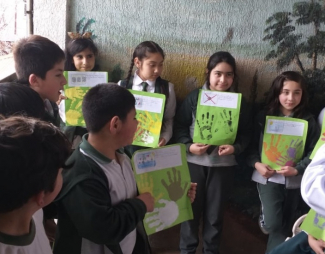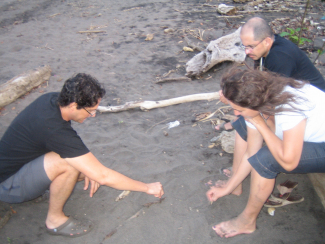FILTER
Displaying 11 - 20 of 30 publications
Input efficiency as a solution to externalities and resource scarcity: A randomized controlled trial
Abstract Resource-conserving technologies are widely reported to benefit both the people who adopt them and the environment. Evidence for these “win-win” claims comes largely from modeling or…
| Peer Reviewed |Key Points Recycling can be promoted in low-income communities through a business model framework Business models for recycling efforts in low-income communities need financial and administrative…
| Research Brief | South AfricaWe evaluate the direct and indirect effects of an environmental educational program with value-laded content on children's and parents' knowledge, attitudes and practices regarding the consumption and…
| Peer Reviewed | ChileWomen's participation in small-scale aquaculture is growing, but women producers remain in a disadvantaged position compared to men. Reducing gender gaps is at the core of many development programs…
| Peer Reviewed | ChileMarine protected areas (MPAs) provide both conservation and economic benefits. Recent international conservation actors have called for a dramatic increase in the area of MPAs from almost 8% to 30% of…
| Peer Reviewed |Abstract Environmentally friendly alternatives are touted as a key component of a transition towards lowering the impact of human activity on the environment. The environmental costs of these…
| EfD Discussion Paper | Central America and MexicoEnvironmental education is regarded as a key instrument for promoting pro-environmental behavior in early childhood. In this paper, we analyze the transmission process within a personal value system…
| Peer Reviewed | ChileThis paper exploits individual-level data before the implementation of a national policy to understand the factors driving avoidance of plastic consumption and explore potential inconsistencies…
| Peer Reviewed | ChileAbstract Using a spatially explicit framework with low/middle-income country coastal characteristics, we explore whether aspatial policies augment the impact of marine protected areas (MPAs) and…
| Peer Reviewed |Abstract The design of protected areas, whether marine or terrestrial, rarely considers how people respond to the imposition of no-take sites with complete or incomplete enforcement. Consequently…
| Peer Reviewed |
